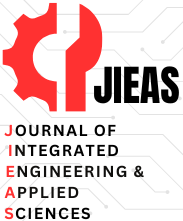George Benneh Mensah – Africa Institute for Regulatory Affairs, LBG Accra, Ghana
Maad M. Mijwil – College of Administration and Economics, Al-Iraqia University, Baghdad, Iraq
Mostafa Abotaleb – Department of System Programming, South Ural State University, Chelyabinsk, Russia
Abstract: This study delves into how Ghana’s Cybersecurity Act addresses training provisions and support for investigating cases of AI negligence, drawing from sections of the Act’s legal cases and academic literature. A legal assessment of Act 1038 concerning capacity building, protection of infrastructure liability gaps considering emerging AI threats and disputes related to negligence based on documented cases was carried out. The analysis reveals that Act 1038 does not explicitly mention risks associated with AI systems in capacity building or designating infrastructure. It suggests the need for measures such as tailored regulations and standardized reporting requirements alongside training to tackle issues related to liability and safety as the use of AI in healthcare expands. It is recommended that the scope of training programs and infrastructure under the Act be broadened to include education on vulnerabilities related to AI and mandate audits for specific healthcare AI applications. Furthermore, there is a call for developing sector regulations addressing negligence accountability. The novelty of this study lies in the analysis of a framework to improve Ghana’s cybersecurity legislation to better govern AI safety promotion in the context of increasing automation in medicine.
Keywords: Cybersecurity policy; artificial intelligence; medical ethics; liability laws; healthcare IT governance.
Full Text: PDF
DOI: https://doi.org/10.5281/zenodo.14964892
Publication Date: 04.03.2025
How to Cite: Mensah, G. B., Mijwil, M. M., & Abotaleb, M. Assessing Ghana’s Cybersecurity Act 2020: AI Training and Medical Negligence Cases. Journal of Integrated Engineering and Applied Sciences, 2025, 3(1), 175–182.
References:
- Ghafir, I., Saleem, J., Hammoudeh, M. et al. Security threats to critical infrastructure: the human factor. J Supercomput., 2018; 74; 4986–5002
- Gale, N.K., Heath, G., Cameron, E. et al. Using the framework method for the analysis of qualitative data in multi-disciplinary health research. BMC Med Res Methodol., 2013; 13; 117.
- Mijwil, M.M., Adamopoulos, I., Pudasaini, P. Machine learning Helps in Quickly Diagnosis Cases of “New Corona”. Mesopotamian Journal of Artificial Intelligence in Healthcare, 2024; 16-19.
- Morley J., Floridi, L. The Limits of Empowerment: How to Reframe the Role of mHealth Tools in the Healthcare Ecosystem. Science and Engineering Ethics, 2019; 26, 1159–1183.
- Neal, J.W., Neal, Z.P., VanDyke, E., and Kornbluh, M. Expediting the Analysis of Qualitative Data in Evaluation: A Procedure for the Rapid Identification of Themes From Audio Recordings (RITA). American Journal of Evaluation, 2014; 36(1); 118-132.
- Newbigging K., Ridley, J. Epistemic struggles: The role of advocacy in promoting epistemic justice and rights in mental health. Social Science & Medicine, 2018; 219; 36-44.
